March 6, 2013 – Karen Kotecki, Julie Darnieder, and Cody Wagner have earned State Bar recognition for their tireless public interest and pro bono work. Each of them will receive an award March 8 at the Wisconsin Equal Justice Conference in Madison.
This article highlights each of them separately, with stories of commitment to low-income and vulnerable individuals on a daily basis and for many years.
Karen Kotecki: A Bright Pink Card
A man walked down a Milwaukee street dragging a lot of stuff, not knowing where to turn and debilitated by mental illness. Then he remembered the bright pink card.
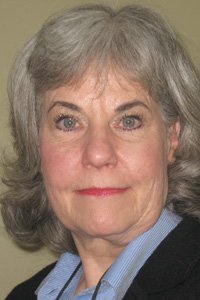
“I worked very hard to give them respect and dignity. They got every bit of due process they deserved.” – Karen Kotecki
It said “Karen Kotecki, Attorney at Law.” He showed the public bus driver the card, and the bus delivered the man to the Legal Aid Society of Milwaukee on Eighth Street. Kotecki would be there, day after day, to help people like him sort through it.
“For many years, there would be someone in our waiting area, just wanting to speak with me and holding their bright pink card,” said Kotecki. “I did that on purpose. Even if their lives were in chaos, it was hard for them to lose that bright pink card.”
Kotecki represented mentally ill and institutionalized individuals over the course of 20 years at Legal Aid. She’s now working in the guardian ad litem division.
For her selfless, lifetime commitment to working in public interest, Kotecki has earned the Dan Tuchscherer Outstanding Public Interest Law Attorney Award from the State Bar of Wisconsin’s Legal Assistance Committee.
“Karen consciously decided to devote her career to advocating for vulnerable populations that are generally shut out of society and shut out of the legal system,” said Tom Cannon, executive director of the Legal Aid Society of Milwaukee.
For nearly two decades, Kotecki counseled mentally ill clients subject to voluntary and involuntary commitment proceedings for treatment and rehabilitation. She started most days representing clients at the local mental health facility.
Madison lawyer Paul Burant, of Community Justice Inc., says Kotecki thrived in an intimidating environment. At one point, she won 17 consecutive jury trials.
“Representing those alleged to be mentally ill and dangerous requires an unusual degree of self-confidence and strong advocacy,” Burant wrote in his nomination letter.
Kotecki faced opposition from police, prosecutors, and often judges, Burant said, but her own clients “frequently lacked the lucidity to make the attorney-client privilege an effective one.” Nevertheless, Kotecki found ways to ensure their due process rights.
“I worked very hard to give them respect and dignity,” Kotecki said. “They got every bit of due process they deserved, even if they didn’t always win in court.”
Kotecki first became interested in the area when former Legal Aid director Tom Zander gave a presentation to her law school class. But Legal Aid had no openings when she graduated from Marquette Law School in 1984. So she went into private practice.
In the mid-1990s, a full-time position opened up.
“Very few are interested in defending the mentally ill,” she said. “But I loved the trial work and the litigation. These people needed someone who could go to bat for them. For for some reason, I had a knack for communicating with these folks.”
Kotecki suspects that her mother, though never diagnosed, may have had a mental illness. Kotecki says she was always able to connect with her mother, and this experience may have helped her communicate with her mentally ill clients.
Tom Cannon said Kotecki’s clients found an effective and compelling voice through her tough-minded advocacy. “Karen forces judges and other decision-makers to act on the needs of fragile individuals,” Cannon said.
Out of court, Kotecki remained a constant advocate and counselor for clients who visited her office seeking a level of comfort and familiarity.
“Often, they didn’t have a lot of choices. I gave them positive choices if I could,” she said. “If I could change somebody’s attitude about their situation, it was a win for me.”
Kotecki tells the story of a once well-to-do client who lost his fortune largely to mental health issues. He was causing a scene at one of his former social spots. The bartender called Kotecki, having obtained Kotecki’s pink card from the client.
“I remembered him telling me about his fondness for martinis at one place in particular. I told him to meet me there for a martini. The bartender said his eyes lit up. I met him, and after talking a while, he agreed to go to the hospital, where he needed to go.”
Kotecki now works in the guardian ad litem division at Legal Aid, now that the State Public Defender has assumed primary responsibility for Wis. Stat. ch. 51 cases.
“It was a hard thing for me to give up,” she said. “But my expertise in dealing with the difficult mental and emotional challenges has served me well in the GAL division.”
Julie Darnieder: A Clinic’s Cornerstone
About 12 years ago, Marquette law students pitched an idea: a legal clinic that would serve low-income individuals and give law student practical skills. Julie Darnieder, a Milwaukee lawyer, decided to help make that vision a reality.
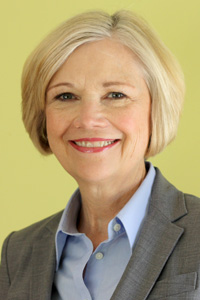
“I also love working with students. I love seeing them progress from timid, first-year students to competent and confident graduates.” – Julie Darnieder
Now, the Marquette Volunteer Legal Clinic has four locations serving more than 3,000 people per year, with hundreds of volunteer lawyers and law students supporting it.
Darnieder is the clinic’s volunteer director. “Julie has made a commitment in her life to make the legal clinic what it is today,” said Angela Schultz, the law school’s pro bono director. “Lawyers often feel that pro bono work isn’t something they could possibly take on. Julie instills the spirit that everything is doable. And she leads by example.”
In recognition of her career of outstanding pro bono service and leadership, Darnieder (Marquette 1978) has earned the Pro Bono Award for Lifetime Achievement from the State Bar's Legal Assistance Committee.
The Volunteer Legal Clinic, now in its 11th year, provides basic legal advice and lawyer referrals on civil legal matters, mostly on family, housing, employment, or consumer issues. The clinic operates five days a week through four locations in Milwaukee. Law students are supervised by licensed attorneys while gaining practical skills.
“We just started a twice-per-month session for Hmong-speaking individuals. We have a Hmong attorney who can speak the language,” said Darnieder, noting the clinic serves military veterans and has access to interpreters for Spanish-speaking clients.
Last year, 240 law students and 222 lawyers volunteered to provide almost 7,000 hours of pro bono service. Schultz says Darnieder, one of the clinic’s founding attorneys, has helped build a sustainable model that will keep the clinic growing in the years ahead.
“Her dedication to public service and the common good runs through her veins,” Schultz said. “Her dedication certainly inspires those who spend time around her.”
A Racine native, Darnieder developed the public service bug from her parents, who instilled the importance of helping people who were less fortunate.
She did pro bono work throughout her 23-year career in private practice at Darnieder & Geraghty, taking domestic violence and other cases from Legal Action of Wisconsin. In 2001, she retired her practice to pursue other projects, and the legal clinic was born.
“A couple of law students came to us, the pro bono committee of the Association for Women Lawyers, with this idea to open a walk-in legal clinic. We kind of took it on.”
“I like that we are meeting a need that exists,” Darnieder said. “I also love working with students. I love seeing them progress from timid, first-year students to competent and confident graduates. Many of them come back as volunteer attorneys.”
Darnieder oversees the clinic’s many volunteers, and facilitates partnerships with local law firms and associations to keep the clinic moving in the right direction. But she also works in the clinic’s trenches, and still takes on pro bono cases when she can.
Darnieder reminds law students that practicing law is a privilege, and with privilege comes a duty to help those who cannot help themselves. She says lawyers can always find the time to volunteer their pro bono services, despite what they may think.
“You can, and it will be well worth it,” Darnieder said. “Our model is that a lawyer meets with a client one time. You don’t have an extensive relationship, but it may be in someone in crisis. You can calm their fears, and put them in the right direction.”
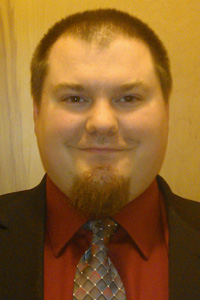
“I always remember that for these clients, their cases are the most important thing in their lives, however small the issue.” – Cody Wagner
Cody Wagner: No Case is Too Small
A homeless woman called Legal Action of Wisconsin, asking for help. She was trying to get assisted housing but there was some legal problem she didn’t understand. Legal Action called Madison lawyer Cody Wagner, one of its volunteers, to take a look.
“Turns out, a prior landlord obtained a default judgment against her for unpaid rent, and this was holding up the process,” Wagner said. “I was able to get the case reopened and dismissed. It was a simple motion, but the woman was so happy.”
Erica Lopez, director of Legal Action’s Volunteer Lawyers Project, says the woman is no longer homeless because of Wagner’s diligence. And these small legal matters make a world of difference in the lives of people who can’t afford lawyers to help them.
“It’s difficult to find someone as versatile as Cody,” Lopez said. “He takes every case we ask him to take. He’s truly dedicated and determined to help our clients with the legal issues they face, no matter how small. That’s the kind of help our clients need.”
For his extraordinary commitment, Wager has earned the Pro Bono Attorney of the Year Award from the State Bar’s Legal Assistance Committee. Wagner has logged nearly 160 hours through Legal Action’s Volunteer Lawyers Project since 2010.
Since graduating magna cum laude from Thomas Cooley Law School in 2007, Wagner has shifted his career to help low-income clients while providing pro bono services.
He worked two years as in-house counsel for a car dealership and finance company, but found a different calling after taking cases pro bono through Legal Action.
“It was just more rewarding for me to be working on those pro bono cases,” he said. “I finally came to the realization that this is what I should be doing full time.”
Now he’s working for Lagmann Inc., a nonprofit organization that provides reduced cost legal services. The agency has an office in Milwaukee to serve clients in the eastern part of the state. Wagner is helping Lagmann expand to reach rural clients in the western part through an office in Reedsburg. But he continues to take pro bono cases.
“I always remember that for these clients, their cases are the most important thing in their lives, however small the issue. It makes a big difference to them,” Wagner said.
Lopez says Wagner is a “go-to” volunteer, taking every type of case. “It’s his ability to take cases that need last-minute representation that sets him apart,” she said.
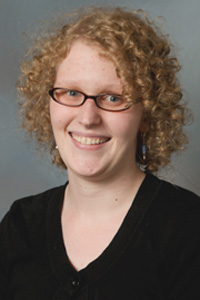
Alaina Fahley
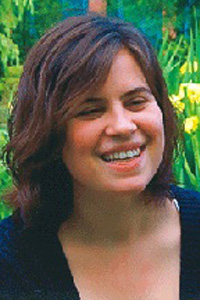
Jennifer Cunha
Public Interest Students of the Year
The State Bar’s Legal Assistance Committee will also recognize two law students, Alaina Fahley and Jennifer Cunha, with Public Interest Student of the Year awards.
Fahley, Marquette, is graduating in 2013. During summer, she was a Public Interest Law Fellow serving the Wisconsin State Public Defender and the Community Advocates Public Policy Institute. She also volunteered for the Marquette Volunteer Legal Clinic, the Marquette Legal Initiative for Nonprofit Corporations, and helped lead outreach and education efforts of the law school’s Public Interest Law Society.
Cunha, U.W., is in her third year of a joint J.D./M.P.A. program. She has served in six legal clinics: the Neighborhood Law Project; the Criminal Appeals Project; the Hayes Police-Prosecution Project; the Domestic Violence Immigration Clinic; the Public Defender Project, and the Mediation Clinic. She also interned at the Coalition of Wisconsin Aging Groups Guardianship Support Center, among other volunteer projects. In addition, she has served as president for Legal Assistance for Disaster Relief, a law student volunteer program providing assistance to victims of natural disasters.
Related
Attend the Wisconsin Equal Justice Conference March 8 at the Pyle Center in Madison. This biannual event was developed by the State Bar’s Legal Assistance Committee as a way to bring together people committed to expanding equal justice under law for low-income and disadvantaged Wisconsin residents. Tuition is $25, which includes a networking lunch. The event is free for Ultimate Pass holders and law students. Register online or call (800) 728-7788.
Read Colleen Ball’s article, “A Passion for Pro Bono: What’s Your Excuse,” forthcoming in the March Wisconsin Lawyer.
Looking for a pro bono project? Visit WisBar’s Pro Bono Directory at www.wisbar.org/formembers/probono/Pages/Volunteer.aspx.
